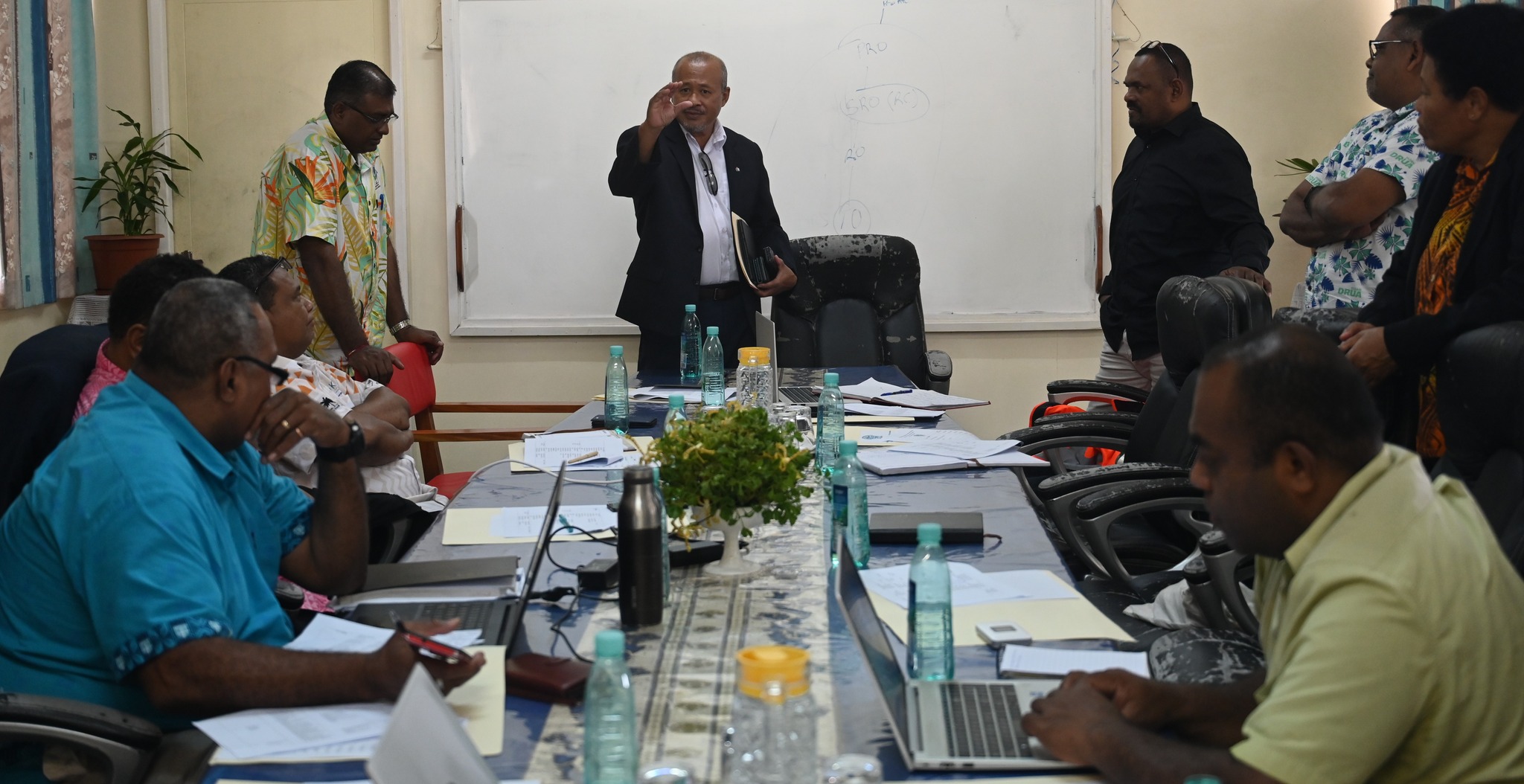Collaboration for improved agricultural and service results
October 12, 2023

Strengthening the linkages between the Research and Extension divisions of the Ministry of Agriculture and Waterways is a fundamental requirement for increasing farm productivity and reducing poverty in the country.
During the recent first quarter meeting of the Extension and Research Division at the Koronivia Research Station, the Permanent Secretary for Agriculture and Waterways, Dr. Andrew Tukana, highlighted the need for greater collaboration between the two divisions.
Dr Tukana said that research and extension services are crucial for agricultural development in any country.
He emphasized the need for effectively disseminating all research findings, new varieties, and improved production technologies to farmers and stakeholders on the ground.
“The mandate of the Research Division is to develop new varieties and production technologies for different crops while the Extension officers working at the field level disseminate these varieties and technologies to the farmers and the end users,” said Dr Tukana.
“It is very crucial to raise the volume of production and to enhance food and nutritional security in order to grow the agricultural sector,” he added.
Dr Tukana reminded the research division of the importance of their work in increasing farm productivity through the production of new varieties and improved production technologies for farmers.
He stated that in order to develop technology, researchers must first identify the needs and expectations of farmers. Likewise, he added farmers must communicate their problems and difficulties in using the improved technologies back to the research division through the extension division, which disseminates the technologies through ground-level extension staff.
“We expect the smooth operation of the process to yield positive outcomes to utilize advanced technologies to enhance farm productivity,” said Dr Tukana.
Considering the inputs and accessible manpower of the research stations, he emphasized the significance of analyzing various factors that impact farmers, such as monetary terms, facilities, equipment, manpower, and infrastructure.
“Both divisions are currently doing great work on the stations, and if we can examine the situations of the farms, the cost of their production would increase. If you can identify alternatives for them to not only maintain low production costs but also increase their level of production or output,” highlighted Dr Tukana.
Dr Tukana thanked the senior staff for building and creating relationships and also working on strengthening collaboration and linkages between the staff of the two divisions.
In addition, he said incorporating meetings among the heads of divisions offers a valuable opportunity to plan not only for current activities but also for future projects and programs, particularly for the upcoming fiscal year.
“It also serves to identify activities that will bring about positive impacts on both the economy and the livelihood of the people.”
“We need proper planning and consultations with our partners and stakeholders and also assist us to work around some challenges that we may face when trying to implement our activities and projects on the ground,” he said.
According to Dr. Tukana, the nation is making significant strides in agricultural development. However, there is untapped potential and further opportunities for growth. These can be pursued through interventions and collaborative efforts, which have the potential to uplift people from poverty and improve their living standards.
-Ends-
